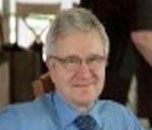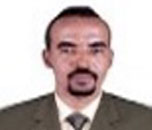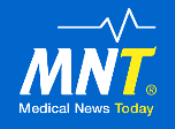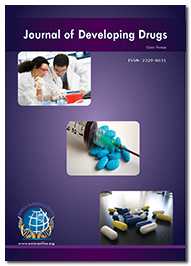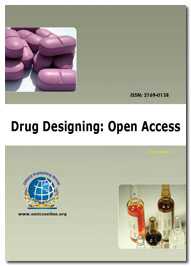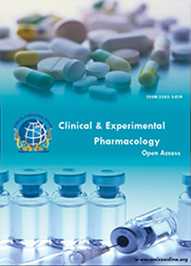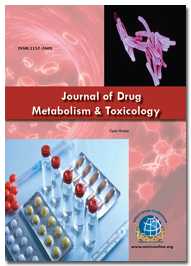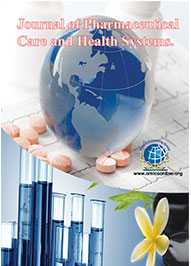Theme: Accelerating future research and Modern practices in Industrial Pharmacy
Industrial Pharmacy 2016
Track 1: Market Surveillance of Industrial Pharmacy
The Indian pharmaceutical industry, the most respected amongst the emerging nations, is one of the most sought after sectors from a global collaboration point of view. The Indian pharma sector offers a lot to be optimistic about. The sector which was only $ six billion in 2005 has zoomed to $18 billion market in 2012, clocking a CAGR of 17 per cent. The sector is expected to grow to $45 billion by 2020. Even in the most pessimistic scenario, the sector is expected to be the sixth largest in the world in terms of absolute size by 2020. The sector stands to benefit from various domestication and international driving factors. Exports continue to make a significant contribution to the industry economic growth story. Apart from the developed markets, Indian pharma companies have established a strong presence in other fast growing semi-regulated markets like Russia, South Africa and Latin America. The share of pharma companies of Indian origin is close to 73 per cent of the Indian market while multinational companies hold the rest 27 per cent. This clearly indicates that the majority share of the Indian market is with domestication Pharmaceutical companies and equally distributed amongst both large and small scale pharmaceutical companies. Currently, India’s share of the US generic market is 24 per cent in terms of volume and 40 per cent of the new product approvals granted by the US FDA has been to Indian companies (YTD 2013). It has established a strong reputation in the global space for being a high quality supplier of affordable generics. The Indian pharm sector is at the threshold of aggressive economic growth. It is believed that the Indian pharma market will be amongst the top three global markets in terms of incremental growth by 2020.
Related conferences of Market Surveillance of Industrial Pharmacy
International Conference on Pharma Marketing November 17-19, 2016 Alicante, Spain; International Conference on Social Media, SEO and Marketing Strategies November 03-04, 2015 Valencia, Spain; International Conference on Pharmaceutical Chemistry August 04-06, 2016 Frankfurt, Germany; 7th Annual Global Pharma Summit June 20-22, 2016 New Orleans, USA; 4th International Conference on Clinical Pharmacy Oct 31 - Nov 01, 2016 Las Vegas, USA; ICIP 2016: International Conference on Industrial Pharmacy Jan 21-22, 2016, France; 5th international conference on pharmaceutical sciences August 10-11, 2016, Dubai, U.A.E; Pharma; 2nd National Pharmacy Conference 21 - 24 October 2016, Durban; 7th European congress of pharmacology 26-30 June 2016, Turkey; 18th International Conference on Pharmaceutical Industry Paris, France July 25 - 26, 2016
Track 2 Industrial Pharmacy Management
Pharmacy benefit manager (PBM) is a third-party administrator of prescription drug programs. PBMs are primarily responsible for developing and maintaining the formulary, contracting with pharmacies, negotiating discounts and rebates with drug manufacturers, and processing and paying prescription drug claims. PBMs also offer programs that provide value and flexibility to participants to help control prescription costs. Some of these areas include information about tablet splitting, lower-cost therapeutic alternatives, and tiered trial of specific medications in a therapeutic class, evaluating clinical programs for large populations, medication therapy management programs, and mail order service.
Specialty drugs are prescribed to treat complex conditions such as cancer, HIV and inflammatory diseases. While these drugs fulfil the promise of modern medicine by enriching and often extending a patient’s quality of life Specialty pharmaceutical spending is on the rise and is expected to increase from approximately $55 billion in 2005 to $1.7 trillion in 2030, according to the Pharmaceutical Care Management Association Specialty drugs are frequently administered by medical professionals at higher-cost treatment sites such as hospitals, infusion centres and physician offices. These drugs also require special handling, administration, patient education, and clinical support -- all of which further drive up their cost Pharmaceutical management teaches how to provide the correct drugs in the correct amount to individuals.
Related conferences of Industrial Pharmacy Management
International Conference on Pharma Marketing November 17-19, 2016 Alicante, Spain; Pharmaceutical Summit and Expo October 08-10, 2015 New Delhi, India; 7th Annual Global Pharma Summit June 20-22, 2016 New Orleans, USA; International Conference and Expo on Biopharmaceutics September 21-22, 2015 Baltimore, MD, USA; 4th International Conference on Clinical Pharmacy Oct 31 - Nov 01, 2016 Las Vegas, USA; ICIP 2016: International Conference on Industrial Pharmacy Jan 21-22, 2016, France; 5th international conference on pharmaceutical sciences August 10-11, 2016, Dubai, U.A.E; 18th International Conference on Pharmaceutical Industry Paris, France July 25 - 26, 2016; 2nd National Pharmacy Conference 21 - 24 October 2016, Durban
Track 3: Drug Design and Marketing
Drug design, sometimes referred to as rational drug design or simply rational design, is the inventive process of finding new medications based on the knowledge of a biological target. Major type of drug designing is ligand-based drug design and the second, is structure-based drug design. Packaging can be defined as an economical means of providing presentation, protection, identification information, containment, convenience and compliance for a product during storage, carriage, display and until the product is consumed. Pharmaceutical packaging has to be carried out for the purpose of Protecting the product from the environment, providing all necessary information for identification of the medicine, enabling accurate dosing and compliance, Ensuring supply-chain integrity of the medicine. Many drug development companies will do all their packaging within a contamination free environment or Cleanroom. Some common pharmaceutical packaging techniques include foil and heat sealing; polyester and olefin package printing; polyethylene and polypropylene printing; and flatbed die cutting. A Pharmacy Benefits Manager, or PBM, is an organization that provides programs and services designed to help maximize drug effectiveness and contain drug expenditures by appropriately influencing the behaviours of prescribing physicians, pharmacists and members. PBM serve as intermediaries between employers and wholesalers, contracting with a network of pharmacies, Developing and managing formularies and prior authorization programs, Operating mail order pharmacies and mail order claims etc.
Pharmacy drugs (A prescription drug, prescription medication or prescription medicine) is a pharmaceutical drug that legally requires a medical prescription to be dispensed. In contrast, over-the-counter drugs can be obtained without a prescription. "Rx" is often used as a short form for prescription drug. He reason for this difference in substance control is the potential scope of misuse, from drug abuse to practicing medicine without a license and without sufficient education. Pharmaceutical marketing, sometimes called medico-marketing or pharma marketing is the business of advertising or otherwise promoting the sale of pharmaceuticals or drugs. Activities conducted as part of pharmaceutical marketing and promotion is an important component of educating and informing consumers and health care professionals about new treatments. Pharmaceutical sales representatives provide doctors with important information about new treatment options that is factored into prescribing, but studies find that many other factors, including insurers’ policies, affect prescribing decisions, often with greater impact. Online pharmacies, also called as online pharmacy, or Mail Order Pharmacies are pharmacies that operate over the Internet and send the orders to customers through the mail or shipping companies. Online or internet pharmacies include Pharmacy benefit manager, A large administrator of corporate prescription drug plans, Legitimate internet pharmacy in the same country as the person ordering etc.
Related conferences of drug design and marketing
2nd International Conference and Expo on Drug Discovery and Designing October 24-26, 2016 Istanbul, Turkey; 4th International Conference on Medicinal Chemistry and Computer Aided Drug Designing November 02-04, 2015 Atlanta, USA; 2nd International Conference on Therapeutic Drug Monitoring and Toxicogenomics June 09-10, 2016 Dallas, USA; Asia Pacific Drug Formulation and Bioavailability Congress June 06-08, 2016 Beijing, China; 8th International Conference and Exhibition on Pharmaceutics and Novel Drug Delivery Systems March 07-09, 2016 Madrid, Spain; Structure Based Drug Designing Conference 2016 21-24 feburivary 2016 North America; 4th Annual Discovery Chemistry and Drug Designing Congress June 2016, berlin Germany; SMi’s 15th Annual Advances and Progress in Drug Designing 15-16 feburivary 2016 Conference London; 18th International Conference on Phenotypic Drug Discovery London, United Kingdom April 22 - 23, 2016; 6th International Conference on Drug Discovery and Therapy 2016 (ICDDT 2016) feburivary 16-19,2016 Dubai
Track 4: Drug Development Stages
The stages of drug development are Discovery, Product characterization, Formulation, Delivery, Packaging Development, Pharmacokinetics and drug deposition, Preclinical Toxicology Examination and IND Application, Bio analytical Testing, Clinical Trials.
Computational drug discovery is an effective strategy for accelerating and economizing drug discovery and development process. Because of the dramatic rise in the availability of biological macromolecule and small molecule information, the applicability of computational drug discovery has been extended and broadly applied to nearly every stage in the drug discovery and development workflow, including target identification and validation, lead discovery and optimization and preclinical tests. Formulation development is the process in which different chemical substances, including the active drug, are mixed to produce a final medicinal product. Formulation studies involve developing a preparation of the drug which is both stable and acceptable to the patient. Reformulation involves the characterization of a drug's physical, chemical, and mechanical properties in order to choose what other ingredients (excipients) should be used in the preparation. Formulation studies consider factors such as particle size, polymorphism, pH, and solubility, as all of these can influence bioavailability and hence the activity of a drug. Drug design, sometimes referred to as rational drug design or simply rational design, is the inventive process of discovering new medications based on the knowledge of a biological target. The drug is most commonly an organic small molecule that activates or inhibits the function of a biomolecule such as a protein, which in turn results in a therapeutic benefit to the patient. In the most basic sense, drug design and discovery involves the design of molecules that are complementary in shape and charge to the bimolecular target with which they interact and therefore will bind to it. Drug design frequently but not necessarily relies on computer modelling techniques. This type of modelling is often referred to as computer-aided drug design. Finally, drug design that relies on the knowledge of the three-dimensional structure of the bimolecular target is known as structure-based drug design. Major type of drug designing is ligand-based drug design and the second, is structure-based drug design. Pharmaceutical research and development begins with the drug discovery phase. Typically, at this stage, chemical compounds — either naturally occurring (called biologics) or synthetic — are investigated in laboratory settings for their potential to bind. Once promising candidates are identified, preclinical trials begins. In this stage, actual drug development begins and pharmacological studies are carried out. Basically that research focuses on how the drug candidates react when delivered to the body. Then clinical trials are carried out. Candidate drug must pass through before it can be considered for market approval. Accerlated pharmacy programs will also be conducted.
Related conferences of drug development stages
2nd International Conference and Expo on Drug Discovery and Designing October 24-26, 2016 Istanbul, Turkey; 4th International Conference on Medicinal Chemistry and Computer Aided Drug Designing November 02-04, 2015 Atlanta, USA; 2nd International Conference on Therapeutic Drug Monitoring and Toxicogenomics June 09-10, 2016 Dallas, USA; Asia Pacific Drug Formulation and Bioavailability Congress June 06-08, 2016 Beijing, China; 8th International Conference and Exhibition on Pharmaceutics and Novel Drug Delivery Systems March 07-09, 2016 Madrid, Spain; The 4th current drug development international conference June 1-3, 2016 Thailand; 54th annual International Conference on Drug Development (ICD2), February 22 & 23, 2016 Texas, USA; 18th International Conference on Pharmaceutical Drug Development and Adverse Effects Amsterdam, The Netherlands May 12 - 13, 2016 ; 18th International Conference on Phenotypic Drug Discovery London, United Kingdom April 22 - 23, 2016; 6th International Conference on Drug Discovery and Therapy 2016 (ICDDT 2016) feburivary 16-19,2016 Dubai
Track 5: Drug discovery and drug development
Drug discovery is the process by which new medications are originated. Historically, drug discovery and development was done through identifying the active ingredient from traditional remedies or by serendipitous discovery. Modern drug discovery process involves the identification of conceal hits, medicinal chemistry and optimization of those hits to increase the affinity, selectivity, efficacy/potency, metabolic stability, and oral bioavailability. Drug design through computer, is a very effective technique in modern arena. Now a days Computer Aided Drug Design (CADD) technologies are used in nanotechnology, biochemistry etc. The main benefit of the CADD is cost effective in research and drug development. There are wide ranges of software’s are used in CADD, are Grid computing, window based general PBPK/PD modelling software etc. Computer aided drug design is applicable in Cancer disease (anticancer drug discovery), transit of drug to specific site in body, data collections and storages of organics and biologicals. Cancer is the second leading cause of death in Europe and North America. A cancer vaccine is that either treats existing cancer or prevents development of cancer. Vaccine that treats existing cancer is called as therapeutic cancer vaccines. There does not exist any vaccines which are able to prevent all cancers as of now.
Related conferences of drug discovery and drug development
2nd International Conference and Expo on Drug Discovery and Designing October 24-26, 2016 Istanbul, Turkey; 4th International Conference on Medicinal Chemistry and Computer Aided Drug Designing November 02-04, 2015 Atlanta, USA; 2nd International Conference on Therapeutic Drug Monitoring and Toxicogenomics June 09-10, 2016 Dallas, USA; Asia Pacific Drug Formulation and Bioavailability Congress June 06-08, 2016 Beijing, China; 8th International Conference and Exhibition on Pharmaceutics and Novel Drug Delivery Systems March 07-09, 2016 Madrid, Spain;7th International Conference on Drug Discovery and Therapy February 15th - 18th, 2016, Dubai, UAE; Drug Discovery and Therapy World Congress 2016 (4th in the Series) May 11th - 14th, 2016, Boston, MA, USA; 17th Annual Drug Discovery Summit 2016 June 2016 berlin Germany; 18th International Conference on Phenotypic Drug Discovery London, United Kingdom April 22 - 23, 2016; 6th International Conference on Drug Discovery and Therapy 2016 (ICDDT 2016) feburivary 16-19,2016 Dubai
Track 6: Healthcare pharmacy
Pharmacists are medication experts who use their detailed knowledge of medicines to help inmates get well. Services include dispensing medications, assuring the safety and appropriateness of the prescribed therapy, monitoring patient health and progress, partnering with consumers and patients to provide education and advice on the use of medications. They also collaborate with physicians, nurses, and other health care team members to provide expertise on drug decisions and improve pharmacy health, patient outcomes, providing knowledge about the composition of drugs and safeguard drug purity and strength. Compounding pharmacists prepare customized prescription medications to meet individual patient needs. They also prepare, mix, assemble, package and label drugs and devices. Overseas pharmacy is nothing but online pharmacy where the pharmacist operates over the Internet and sends the orders to customers through the mail or shipping companies. Risk concern with overseas pharmacy is that some Illegal or unethical pharmacies sometimes send outdated, substituted, or counterfeit medications, Minors or children can order controlled substances without adult supervision, Other concerns include potential lack of confidentiality, improper packaging, inability to check for drug interactions, and several other issues. A community pharmacy is a healthcare facility that emphasizes providing pharmaceutical services to a specific community health. It dispenses pharmacy medication and typically involves a registered pharmacist. Community pharmacists are the health professionals most accessible to the public. They supply medicines in accordance with a prescription or, when legally permitted, sell them without a prescription. In addition to ensuring an accurate supply of appropriate products, their professional activities also cover counselling of patients at the time of dispensing of prescription and non-prescription medicine, drug information to health professionals, patients and the general public, and participation in health-promotion programmes. They maintain links with other health professional in primary health care.
Compounding pharmacy is the art and science of preparing personalized medications for patients. In general, compounding is a practice in which a licensed pharmacist, a licensed physician, or, in the case of an outsourcing facility, a person under the supervision of a licensed pharmacist, combines, mixes, or alters ingredients of a drug to create a medication tailored to the needs of an individual patient. The traditional role of compounding pharmacies is to make drugs prescribed by doctors for specific patients with needs that can't be met by commercially available drugs.
Related conferences of Healthcare Pharmacy
4th Global Summit on Healthcare November 09-11, 2015 Dubai, UAE; Annual Congress & Medicare Expo on Primary Healthcare April 25-27, 2016 Dubai, UAE; Pharma Middle East November 02-04, 2015 Dubai, UAE; International Conference and Expo on Biopharmaceutics September 21-22, 2015 Baltimore, MD, USA; Pharmaceutical Summit and Expo October 08-10, 2015 New Delhi, India; ICIP 2016: International Conference on Industrial Pharmacy Jan 21-22, 2016, France; 5th international conference on pharmaceutical sciences August 10-11, 2016, Dubai, U.A.E; Pharma; 2nd National Pharmacy Conference 21 - 24 October 2016, Durban; 7th European congress of pharmacology 26-30 June 2016, Turkey; 18th International Conference on Pharmaceutical Industry Paris, France July 25 - 26, 2016
Track 7: Clinical Studies
Clinical trial is a research study that prospectively assigns human participants or groups of humans to one or more health-related interventions to evaluate the effects on health outcomes. Pre-clinical research and conduct of clinical trial is also named as preclinical trials and nonclinical trials is a stage of research that begins before clinical trials, and during which important feasibility, iterative testing and drug safety database is collected. The main goals of pre-clinical trials are to determine the safe dose for First-in-man study and start to assess product's safety profile. A clinical trial is a type of clinical research that follows a pre-defined plan or protocol. Clinical trials are typically conducted in four phases, each phase is considered as separate trial and, after completion of a phase, investigators are required to submit their data for approval from the FDA before continuing to the next phase. The process of identification, analysis and either acceptance or mitigation of uncertainty in investment decision-making Essentially, risk management occurs anytime an investor or fund manager analyses and attempts to quantify the potential for losses in an investment and then takes the appropriate action given their investment objectives and risk tolerance. Inadequate risk management and data outsourcing can result in severe consequences for companies as well as individuals. Clinical research raises profound ethical and safety questions. The protection of participants in a clinical trial is of paramount importance. With the increasing challenges associated with bringing a medical product to market, and skyrocketing R&D costs, there has been a shift in biopharmaceutical commercialization and clinical trial strategies in order to minimize risk and maximize success. Moreover, market saturation in many disease modalities is also forcing biopharmaceutical enterprises to focus their efforts on accessing patients with orphan/rare diseases. The future of clinical trials illustrated as follows. Access and engage the patient online – Attract patients to the trial – Consent patients & convert to subjects – Remotely manage subjects & collect data.
Related conferences of clinical studies
7th International conference and exhibition on Pharmacovigilance and Clinical Trials September 19-21, 2016 Vienna, Austria; 2nd International Conference on Clinical Trials August 22-24, 2016 Philadelphia, USA; 3rd Experts Meeting on Medical Case Reports May 09-11, 2016 New Orleans, Louisiana, USA; International Conference on Case Reports March 31-April 02, 2016 Valencia, Spain; 2nd International Meeting on Clinical Case Reports April 18-20, 2016 Dubai, UAE ; Outsourcing in Clinical Trial East Coast 2016 May 25-26 2016, King of Prussia, Pennsylvania; 5th Annual Clinical Trial and development Asia Congress January 2016, china; Pharmacovigilance and Clinical Trial Conference and Expo 2016 19-21 September Austria 3rd Annual Clinical Trial Supply Chain 29-30 September 2015 Germany; The Structure of Clinical Trial and Experimental Therapeutics 12-16 October 2015, Uk
Track 8: Waste Management of Industrial Pharmacy
Waste by definition is something that the producer no longer requires and therefore discards. In many industries the waste has been to dispose of it as cheaply as possible without much concern as to what happens. Now this altitude is changing as greater environmental safety is reflected. Fly tipped waste can poison and injure children and animals, carelessly disposed of liquid waste such as solvents can leach into ground water and contaminate drinking water supplies, poorly planned and landfills will create significant neighbourhood nuisance. Biomedical waste means “any solid and/or liquid waste including its container and any intermediate product, which is generated during the diagnosis, treatment or immunization of human beings or animals. Biomedical waste poses hazard due to infectivity and other toxicity. biomedical waste consist of Human anatomical waste like tissues, organs and body parts, Animal wastes generated during research from veterinary hospitals, Waste sharps like hypodermic needles, syringes, scalpels and broken glass.
Pharmaceuticals are an important part of maintaining human health, but many pharmaceuticals contain toxic chemicals that can pollute the environment if they are not properly managed and disposed of. Pharmaceutical waste is potentially generated through a wide variety of activities in a healthcare facility. Hazardous waste is waste that is dangerous or potentially harmful to our health or the environment. Hazardous wastes can be liquids, solids, gases, or sludge’s. They can be discarded commercial products, like cleaning fluids or pesticides, or the by-products of manufacturing processes. Toxic wastes are poisons, even in very small or trace amounts. They may have acute effects, causing death or violent illness. Several options are available for hazardous-waste management. The most desirable is to reduce the quantity of waste at its source or to recycle the materials for some other productive use. Environmental responsibility and stewardship is the key to any industrial Waste Disposal program. Some of the best waste management practices include Reduce unused pharmaceuticals by reviewing purchasing practices, using limited dose or unit dose dispensing, replacing pharmaceutical samples with vouchers, and performing on-going inventory control and stock rotation. Segregate waste for disposal to ensure regulations are met and to reduce costs (e.g., non-hazardous pharmaceutical waste disposal in a solid waste landfill may be less expensive than disposal via hazardous waste hauler).
Related conferences of waste management of industrial pharmacy
3rd International Conference on Clinical Pharmacy December 07-09, 2015 Atlanta, USA; International Conference on Pharma Marketing November 17-19, 2016 Alicante, Spain; International Conference on Pharmaceutical Chemistry August 04-06, 2016 Frankfurt, Germany; 7th Annual Global Pharma Summit June 20-22, 2016 New Orleans, USA; 4th International Conference on Clinical Pharmacy Oct 31 - Nov 01, 2016 Las Vegas, USA ; 18th International Conference on Waste Management, Recycling and Environment 15-16 February 2016 Barcelona, Spain; 8th International Conference on Waste Management and the Environment 07 - 09 June 2016 / Spain, Valencia Global waste management symposium January 31-February 3, 2016 Palm Springs, CA; 18th International Conference on Solid Waste Paris, France February 22 - 23, 2016; The 31th International Conference on Solid Waste Technology and Management Philadelphia, PA U.S.A. April 3-6, 2016
Track 9: Good Manufacturing Practices
Good Manufacturing Practices is the aspect of quality assurance that ensures that medicinal products are consistently produced and controlled to the quality standards appropriate to their intended use and as required by the product specification. GMP defines quality measures for both production and quality control and defines general measures to ensure that processes necessary for production and testing are clearly defined, validated, reviewed, and documented, and that the personnel, premises and materials are suitable for the production of pharmaceuticals and biologicals including vaccines. GMP Quality Audits are necessary for assessment of self-inspection in the regulatory aspects of GLP/GCP interface. Roles of pharmaceutical inspection convention and co-operation scheme (PIC/S) are to improve co-operation in the field of Good Manufacturing Practices between regulatory authorities and the pharmaceutical industry.EU-GMP guidelines are needed to maintain the quality which is stricter when compared to WHO-GMP guidelines.CGMP (Current good manufacturing practice guidelines) Quality Principles for Biologics and Medical Devices are required to maintain product compliance.
Good Clinical Practice (GCP) is an international ethical and scientific quality standard for designing, conducting, recording and reporting trials that involve the participation of human subjects. The GLP Principles describe requirements for and provide general guidance on the conduct of all nonclinical health and environmental safety studies, including invitro studies. Good laboratory practice should be followed for pre-clinical trials. The role of Quality Impact Assessment & effectiveness checks is an essential operation of the pharmaceutical industry. Quality Control Technicians are responsible for assuring quality of the product through all day-to-day operations. They assist the bio manufacturing plant by evaluating raw materials, other supplies and the finished, packaged product. They ensure compliance to common Good Manufacturing Practices. Quality control also plays a major role in analytical method development. General Quality Management is very important for pharmaceutical industries to produce the better product and ensure the maximum safety of healthcare system and also protect waste of money for both government & individual consumers Quality assurance testing is done by using software called Quality Metrics.
Related conferences of good manufacturing practice
4th International Summit on GMP GCP and Quality Control October 26-28, 2015 Hyderabad, India; 3rd International Conference on Clinical Pharmacy December 07-09, 2015 Atlanta, USA; 7th Annual Global Pharma Summit June 20-22, 2016 New Orleans, USA; 4th International Conference on Clinical Pharmacy Oct 31 - Nov 01, 2016 Las Vegas, USA; 18th International Conference on Waste Management, Recycling and Environment 15-16 February 2016 Barcelona, Spain; 18th International Conference on Waste Management, Recycling and Environment 15-16 February 2016 Barcelona, Spain; 8th International Conference on Waste Management and the Environment 07 - 09 June 2016 / Spain, Valencia; 7th Annual Global Pharma Summit June 20-22, 2016 New Orleans, USA; 4th International Conference on Clinical Pharmacy Oct 31 - Nov 01, 2016 Las Vegas, USA; 4th Global Summit on Healthcare November 09-11, 2015 Dubai, UAE
Track 10: Functions of Regulatory Bodies
Regulatory Affairs is a profession which has developed from the desire of governments to protect public health, by controlling the safety and efficacy of healthcare products in areas including pharmaceuticals, veterinary medicines, medical devices, pesticides, agrochemicals, cosmetics and complementary medicines. The Regulatory professional's roles and responsibilities typically begin within the analysis and development phases, going in clinical trials and lengthening through premarket approvals, producing, labelling and advertising and postmarked police work best in both Biologics and biotechnology products. The novel Regulatory aspects include Novel Drug Discovery Systems, Medical Affairs, Active Pharmaceutical Ingredients, and Licensing in pharmaceutical production, packaging materials and pharmaceutical excipients. Licensing in pharmaceutical production is mandatory step for pharmaceutical products (regulatory requirement for pharmaceutical products). Principal ideas of Intellectual Property Management (IPM) and its importance as a spur to human power and therefore the advancement of economic and social development. It additionally provides rationalization on the event Associate in implementation of an IPM strategy together with the management of material possession. Patents in the pharmaceutical industry include both legal and ethical issues. As outlined in WHO's Guiding Principles for Small National Drug Regulatory Authorities (1) an important task for a drug regulatory authority (DRA) is to institute a system which subjects all pharmaceutical products to premarketing evaluation, marketing authorization and post marketing review to ensure that they conform to required standards of quality, safety and efficacy. Quality of beginning materials, instrumentality labelling, pharmacology, medical specialty and clinical information, Product data, Interchange ability, issue of written marketing authorizations variations, community Code on medicinal products, periodic reviews, suspension and revocation of selling authorization must be checked in marketing authorization.
Related conferences of functions of regulatory bodies
2nd International Conference on Food Safety and Regulatory Measures June 06-08, 2016 London, UK; 6th International Conference and Exhibition on Pharmaceutical Regulatory Affairs and IPR September 12-14, 2016 San Antonio, USA; 4th International Conference on Forensic Research and Technology September 28-30, 2015 Atlanta, USA; Experts Meeting on Forensic Psychology July 18-20, 2016 Brisbane, Australia; 5th International conference on Forensic Research and Technology November 17-19, 2016 San Francisco, USA ; 17th International Conference of Drug Regulatory Affairs, 27 - 28 November 2016 South Africa; 18th International Conference on Pharmaceutical Regulatory Affairs Venice, Italy August 8 - 9, 2016; 14th EGA Regulatory Affairs Conference 22 - 23 January 2015 / UK, London; Pharmaceutical Regulatory Affairs Asia, April 2016 London UK; 17th International Conference of Drug Regulatory Affairs, 27 - 28 November 2016 South Africa
Track 11: Veterinary Pharmaceuticals
Veterinary science is vital to study and protection of livestock. The Global veterinary healthcare market, estimated at $24.8 Billion in 2014, is set to reach $34.39 Billion by 2019. Veterinary healthcare market is gaining importance as a result of manufacturers focus on production of products with specialized formulations and specialized manufacturing processes. The research and marketing of veterinary medicines are, therefore, more complicated compared to human medicines. Animal breeding and genetics provide advance breeding technology and testing services such as DNA typing, genetic trait tests, and genetic disease tests. The animal genetics market is segmented by products, testing services, and by geography. Based on type of product, the market is mainly segmented into live animals and genetic material. The global dairy herd management market was valued at $823.65 million in 2013 and is expected to reach $1,511.91 million by 2018, at a CAGR of 12.92% between 2013 and 2018. Dairy cattle management products are rapidly gaining widespread acceptance in the dairy industry primarily due to the increased demand for dairy products. The U.S. poultry production industry is the world's largest producer, its second-largest exporter of poultry meat, and a major egg producer. The poultry and egg industry is a major user of feed grains. Animal testing, also known as animal experimentation, animal research, and in vivo testing, is the use of non-human animals in experiments. The Animal Biotechnology industry has experienced strong growth during the past five years. Since 2010, industry revenue is expected to rise at an average annual rate of 5.0% to $8.7 billion.
Related conferences of veterinary pharmaceuticals
2nd Indo-Global Summit & Expo on Veterinary October 26-28, 2015 Hyderabad, India; 4th Global Veterinary Summit November 14-16, 2016 Atlanta, USA; 3rd International Veterinary Congress August 18-20, 2016 London, UK; International Dairy Meet & Expo June 30-July 02, 2016 New Orleans, USA; 2nd Indo-Global Summit & Expo on Veterinary October 26-28, 2015 Hyderabad, India;
Southwest Veterinary science Symposium 24-27 September 2015 USA; 18th International Conference on Animal Science and Veterinary Medicines Paris, France February 22 - 23, 2016; 9th Eurasia Veterinary science Conference Cambodia 15 - 19. Feb 2016; Michigan Veterinary science Conference January 29-31, 2016 Lansing, Michigan; World Feline Veterinary science Conference 1 -4 Oct 2015, California, United States
Track 12: Pharmacy from Natural Products
A natural product is a compound or substance produced by a living organism that is, found in nature. In the broadest sense, natural products include any substance originated by life. The products contain complex mixture of many medicinal plant metabolites, such as Natural products: Alkaloids, steroids, flavonoids, and triterpinoids.Phytochemistry is nothing but the branch of chemistry concerned with plants and plant products. .Exposure of skin to sunlight and other atmospheric conditions causes the production of reactive oxygen species, which can react with DNA, proteins, and fatty acids, causing oxidative damage and impairment of antioxidant by using different system. Chromatography and powerful tool of detection of Phytoconstituents of their helpful instruments like Identification: UV, IR, NMR, Mass spectroscopy. The dominant separation technique High-performance liquid chromatography is a technique in analytical chemistry used to separate the components in a mixture, to identify each component, and to quantify each component-Ray diffraction is a tool used for identifying the atomic and molecular structure of a crystal.
The art or practice of using herbs and herbal preparations to maintain health and to prevent, or cure disease and a plant or plant part or an extract or mixture of these used in herbal medicine by the Extraction method of drug formulation. A pharmacological study of Herbal drugs is a method of using natural herbs and plants to promote physical, emotional, and spiritual health. Recent efforts into the research and development of Natural products as markers for new drug discovery of anti-cancer drugs have led to the identification of a variety of Terpenoids that inhibit cancer cell proliferation and metastasis via various mechanisms. Phytochemical evaluation of plant drug Now day’s pharmaceutical companies start processing of medicinal and aromatic plants in their formulation by using extraction of active components there are several processes like distillation, effleurage, maceration, expression, solvent extraction and fluid extraction are available for extraction of plant component and which includes Moisture content, total ash, acid insoluble ash, water soluble ash, water soluble Extractive value, alcohol soluble Extractive value, Phytochemical screening, and further isolation and identification of phytoconstituents.Natural products can also be prepared by chemical synthesis (both semisynthesis and total synthesis) and have played a crucial role in the development of the field of organic chemistry by providing challenging synthetic targets. Identity, purity, and quality of Crude drugs is a Standardization of drugs means confirmation of its identity, determination of its quality, purity and detection of nature of adulterant by various parameters like morphological, microscopically, physical, chemical and biological evaluations. Plant tissue culture is widely used to produce clones of a plant in a method known as micro propagation. Plant biotechnology may be defined as the application of knowledge obtained from study of the life sciences to create technological improvements in plant species.
Related conferences of pharmacy from natural products
3rd International Conference and Exhibition on Pharmacognosy, Phytochemistry and Natural Products October 26-28, 2015 Hyderabad, India; International Conference and Exhibition on Marine Drugs and Natural Products July 28-30, 2016 Melbourne, Australia; Global Summit on Herbals and Natural Remedies October 26-27, 2015 Chicago, USA; Global Summit on Plant Science September 21-23, 2015 San Antonio, USA; 3rd International Conference and Exhibition on Pharmacognosy, Phytochemistry and Natural Products October 26-28, 2015 Hyderabad, India; 18th International Conference on Pharmacognosy, Phytochemistry and Natural Products Istanbul, Turkey November 28 - 29, 2016; 9th Joint Natural Products Conference July 24-27, 2016 Denmark; the 2nd Conference on Ethnomedicine and Traditional Medicine June 1 - 3, 2016 Nanjing, China; 18th International Conference on Pharmacognosy, Phytochemistry and Natural Products Istanbul, Turkey November 28 - 29, 2016; 9th Joint Natural Products Conference July 24-27, 2016 Denmark.
Track 13: Industrial pharmacist experts
Industrial pharmacists research drug compounds and flourish new medications based on research. They test medicines for efficiency and security, oversee the manufacturing process to ensure medications are produced accurately, and they engage marketing and promoting new drugs to consumers, hospitals and doctors' offices. An industrial pharmacist may also be pledged for conducting clinical trials and evaluating the outcome of these trials to gauge a drug’s effectiveness and to determine potential risks or side effects. As part of a clinical drug trial, industrial pharmacists collaborate with other pharmaceutical companies, local and federal governments, and a variety of health care professionals to ensure trials are conducted safety and within federal or state guidelines for drug testing. Pharmacists must have a Doctor of Pharmacy degree from an accredited college or university. To gain admission to a doctorate program in pharmacy, applicants must complete course work in anatomy and physiology, general biology, general chemistry, microbiology, organic chemistry, physics, immunology research, biochemistry, statistics, calculus, economics and the liberal arts. Pharmacists must be licensed by the state in which they intend to practice. Licensing requires successfully passing two comprehensive exams.
Related conferences of Industrial Pharmacist experts
International Conference on Pharma Marketing November 17-19, 2016 Alicante, Spain; Pharmaceutical Summit and Expo October 08-10, 2015 New Delhi, India; 7th Annual Global Pharma Summit June 20-22, 2016 New Orleans, USA; International Conference and Expo on Biopharmaceutics September 21-22, 2015 Baltimore, MD, USA; 4th International Conference on Clinical Pharmacy Oct 31 - Nov 01, 2016 Las Vegas, USA; ICIP 2016: International Conference on Industrial Pharmacy Jan 21-22, 2016, France; 5th international conference on pharmaceutical sciences August 10-11, 2016, Dubai, U.A.E; 18th International Conference on Pharmaceutical Industry Paris, France July 25 - 26, 2016; 2nd National Pharmacy Conference 21 - 24 October 2016, Durban
On behalf of industrial pharmacy 2016 organizing committee, OMICS International invites analytical expertise researchers, professors, scientific communities, delegates, students, business professionals and executives to attend the “International Conferences and Expo on Industrial Pharmacy” which is to be held during April 28-29, 2016 at Dubai, UAE.
The pharmacy conferences provide a platform to detail the research work of expertise from various scientific backgrounds and the same can be perceived by young researchers and students. The pharmacy conference mainly aims to provide knowledge on Industrial Pharmacy and unveil the roles and responsibilities if Industrial Pharmacist. In course of research work and therefore Industrial Pharmacy 2016 would be a perfect venue to share and develop knowledge on Industrial Pharmacy.
Pharmaceutical Industry includes venture that produce synthetic and plant derived preparations, vitamins, antibiotics, blood constituents, drugs in various dosage forms .They are subjected to a variety of laws and regulations that govern the patenting, testing, safety, competence and marketing of drugs. Pharma industries deal with accelerated research to discover new drugs. The pharmacy industry and volume of productivity is determined by its capital etc. Evolution and elevation in pharmaceutical industry helps in controlling and treating the diseases.
In the light of this theme, the conference series aims to provide a forum for international researchers from various areas of pharmacy, medical, Health science and life science by providing a platform for critical analysis of new data, and to share latest cutting-edge research findings and results about all aspects of pharmacy conference, industrial pharmacy.
Target Audience
Industrial pharmacist
Researchers in development of new medicines
Health professionals about medicines
Logistics, business development professionals
Consultants and Pharma service providers
Quality control specialist
Graduates and post graduates in industrial pharmacy
Global spending on medicines was $1 trillion threshold in 2014 and is expected to reach $1.2 trillion by 2017, according to a recent report by the IMS Institute for Healthcare Informatics. The Global Use of Medicines Outlook through 2017 found that growth in global spending on medicines was increased 2.6% to $965 billion in 2012, and is forecast to grow at a 3–6% compound annual rate over the next five years. Annual growth in spending was 2–3% in 2013 and now it is expected to rise 5–7% by 2017. According to IMS. Spending on specialty medicines is expected to reach $230–240 billion by 2017. In pharmerging markets, the use of specialty medicines is limited, but spending is expected to rise nearly 90% by 2017, to $40–50 billion annually.
OMICS International organises 1000+ global events every year across the globe with support from 1000+ more scientific societies and publishes 700 open access journals which contain over 50000 eminent personalities , reputed scientists as editorial board members.
Industrial pharmacy is a complex, multi-factorial environment, with the overall aim of manufacturing, developing and marketing safe and efficacious medicines including quality assurance of these activities. Research in industrial pharmacy is done both locally and under the guidance of Faculty of Pharmacy.
Industrial pharmacist is responsible for determining the medication developed by pharmaceutical companies have both right ingredient and correct amount of these ingredients. The pharmaceutical industry is made up of a large number of different areas which all form part of the journey of drug discovery to marketing and sales of a medicine. Pharmacists are in the fortunate position of being able to contribute professionally at almost any point along this journey
Within every pharmaceutical company the regulatory affairs team support the progression of a drug product through from clinical studies, launch and post marketing and ensure that all means of advertisement and publicity regarding the product are compliant with the various regulatory bodies such as the Food and Drug Administration (FDA) and the Medicines and Healthcare Products Regulatory Agency (MHRA). Regulatory affairs teams also ensure that all intellectual property enclosing a product is adequately protected by patent laws and is competitive within the identified market.
Many of the industrial pharmacists have not remained in one specific area of the pharmaceutical industry, rather they have utilised the ability to perform diverse roles and develop experience in all sectors.
In the industrial sector the pharmacy qualification is of a quality superior to many other disciplines.
Why in Dubai UAE
UAE is the second largest pharmaceutical market in the gulf region. It is the regional leader in the manufacturing of pharmaceutical products and it is likely to grow steadily in some years. The total market value is estimated at US$ 1.8 Billion. Strong government support has resulted in growth of healthcare segment. Use of generic drugs is promoted to reduce the healthcare cost. Many multinational companies started their operation in Dubai in order to access the market and develop drugs.
Many of the multinational top pharmaceutical companies have established their regional centres in Dubai so as to cover the entire regional market. Gulf Pharmaceutical industries (Julphar) are the largest and oldest pharmaceutical companies in the market.
Dubai allows to reach the Middle East, North Africa, Europe and Asia through the UAE market because the Pharmaceutical market has high growth potential due to stable and favourable regulatory and political environment in the UAE.
The UAE is 2nd in the region in terms of capital invested in the Pharma sector and Highest-priced market in the region. The pharmaceutical industry in the UAE also benefits from re-export markets as Iran, Pakistan, Yemen and Somalia which are the major buyers of re-exported pharmaceuticals from the UAE.
Why to Attend
To have a broader view on the materials, ingredients used in case of manufacturing different pharmaceutical products like tablets, capsules, lotions, gels, creams etc and the innovative methods employed for their development and processing in various fields of Pharma industries and drug development. The current conference also deals with the advanced technologies in the field of Pharmacy which distends the growth in formulating new medicines thereby promoting healthcare. It not only gives an idea on the Pharma industries but also creates a unique approach towards novel strategies
UAE Market Value on Industrial Pharmacy
UAE is the second largest pharmaceutical market in the gulf region. It is the regional leader in the manufacturing of pharmaceutical products and it is likely to grow steadily for some years. The total market value is estimated at US$ 1.8 Billion. Strong government support has resulted in growth of healthcare segment.
The United Arab Emirates' pharmaceutical market was estimated to have been worth $2.4 billion in 2013 and is expected to reach $3.7 billion by 2020 at a projected Compound Annual Growth Rate (CAGR) of 5.3%. The UAE's medical device market was valued at approximately $600.2m in 2008, and $733.3min 2013. The medical device market is estimated to reach $978.9m in 2020 at a CAGR of 4.2% from 2014. The positive trends in UAE's healthcare market can primarily be attributed to the increasing coverage of healthcare insurance and government initiatives to improve healthcare facilities. The UAE's healthcare market will also be boosted by medical tourists, of which Dubai is aiming to have more than 20 million by 2020, according to UAE interact.
The UAE’s medical device market was valued at approximately $600.2m in 2008, and $733.3m in 2013. The medical device market is estimated to reach $978.9m in 2020 at a CAGR of 4.2% from 2014.
The robust growth of Saudi Arabia's economy has been coupled with a rapidly growing population. With a population growth rate exceeding 2% p.a., Saudi Arabia's healthcare budget as a percentage of its GDP has increased from 3.2% to 4.3% over the period 2008 to 2012. The pharmaceutical industry has consequently grown in the same time from USD 3.0 bn to USD 3.8 bn. Total global spending on medicines will exceed one trillion U.S. dollars for the first time in 2014 and reach almost $1.2 trillion in 2017.
Global Market Value on Industrial Pharmacy
Global spending on medicines was $1 trillion threshold in 2014 and is expected to reach $1.2 trillion by 2017, according to a recent report by the IMS Institute for Healthcare Informatics. The Global Use of Medicines Outlook through 2017 found that growth in global spending on medicines was increased 2.6% to $965 billion in 2012, and is forecast to grow at a 3–6% compound annual rate over the next five years. Annual growth in spending was 2–3% in 2013 and now it is expected to rise 5–7% by 2017. According to IMS. Spending on specialty medicines is expected to reach $230–240 billion by 2017. In pharmerging markets, the use of specialty medicines is limited, but spending is expected to rise nearly 90% by 2017, to $40–50 billion annually.
Major Pharma societies of Middle East region
GUC Scientific Pharmaceutical Students' Association (GUCSPSA)
Egyptian Pharmaceutical Students Federation (EPSF)
Iranian Pharmacy Students Association (IPSA)
The Pharmaceutical Society of Israel
Jordan Pharmaceutical Association
Kuwait Pharmaceutical Association
Saudi Pharmaceutical Society
Turkish Association of Pharmaceutical and Medicinal Chemistry
Turkish Pharmacists Association
Turkish Society of Clinical Pharmacology
Major International Pharma associations
Association de Pharmacie Galénique Industrielle
Institute of Pharmacy Management International
International Society of Oncology Pharmacy Practitioners
International Society of Pharmaceutical Compounding
The Pharmacy Guild of Australia
Pharmacy Graduates' Association, Bangladesh
Practising Pharmacists Association of Hong Kong
Society for Pharmaceutical Research
Italian Society for Pharmaceutical Sciences
For more information about industrial pharmacy Market Analysis PS: industrial pharmacy Market Analysis
Conference Highlights
- Healthcare pharmacy
- Drug discovery and drug development
- Drug Development Stages
- Drug Design and Marketing
- Clinical Studies
- Waste management of industrial pharmacy
- Good manufacturing practices
- Functions of Regulatory Bodies
- Veternary Pharmaceuticals
- Pharmacy from Natural products
- Market Surveillance of Industrial Pharmacy
- Industrial Pharmacy Management
- Industrial Pharmacist Experts
To share your views and research, please click here to register for the Conference.
To Collaborate Scientific Professionals around the World
| Conference Date | April 28-29, 2016 | ||
| Sponsors & Exhibitors |
|
||
| Speaker Opportunity Closed | Day 1 | Day 2 | |
| Poster Opportunity Closed | Click Here to View | ||
Useful Links
Special Issues
All accepted abstracts will be published in respective Our International Journals.
Abstracts will be provided with Digital Object Identifier by








